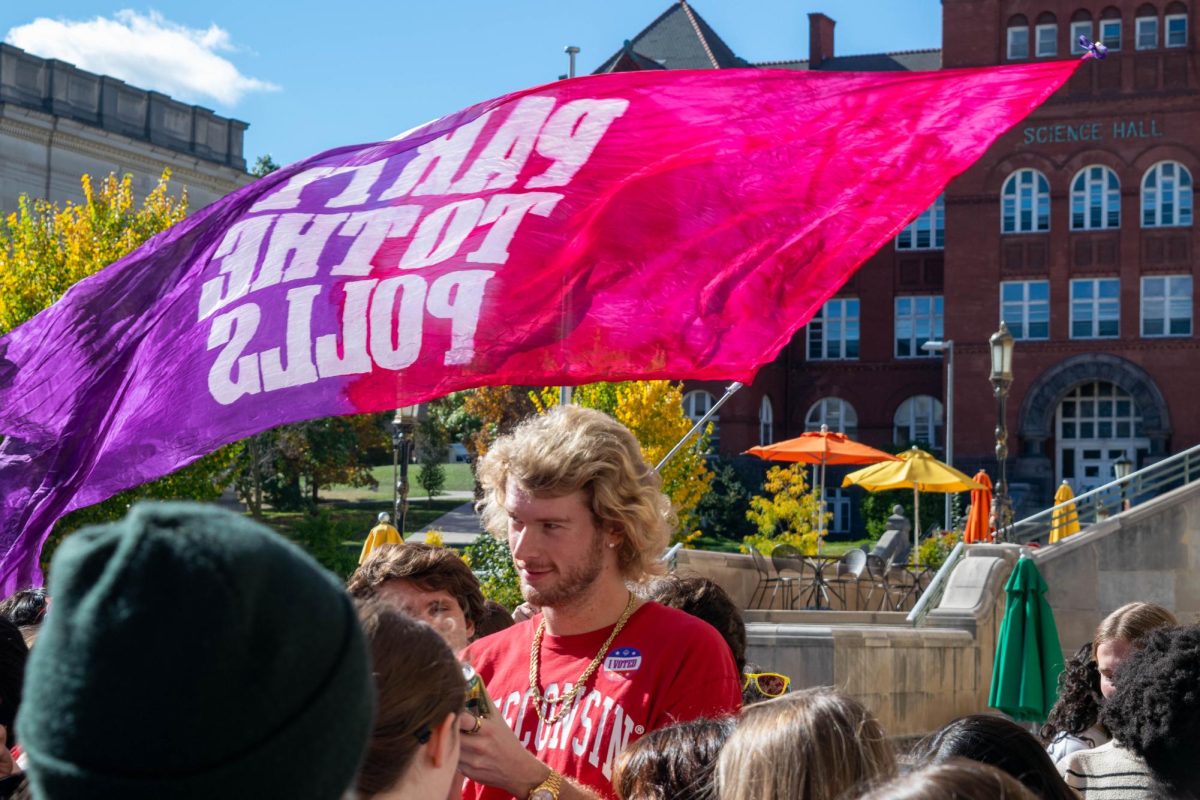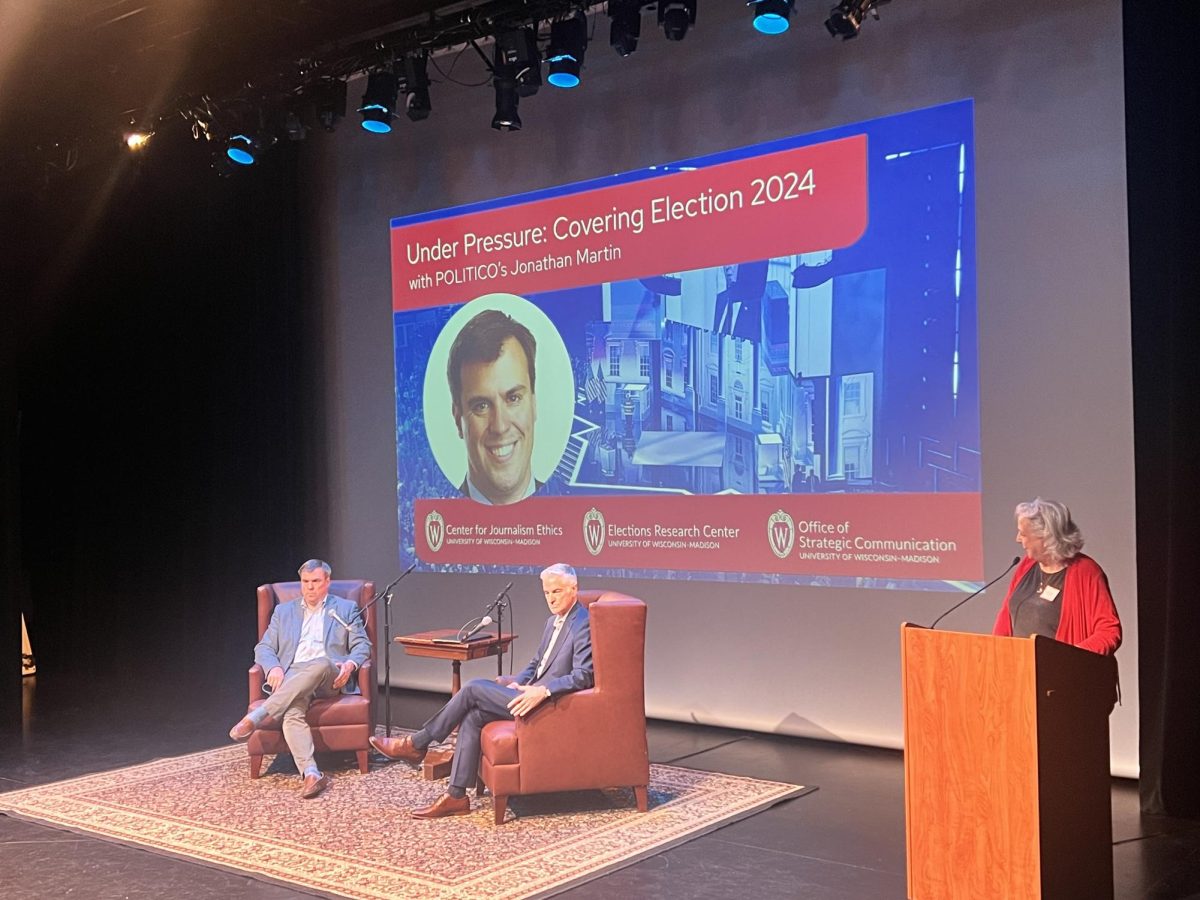The newest incarnation of a legal battle dating as far back as 1999 could have severe implications on academic freedoms of University of Wisconsin professors.
Since then, the case has climbed through the many levels of the Wisconsin legal structure and began oral arguments Tuesday in the Wisconsin Supreme Court.
The case of Dr. John Marder, former UW-Superior journalism professor, began in May 1999 when UW-S Chancellor Julius Erlenbach filed a total of 18 dismissal charges against Marder. Among the charges were two calls of sexual impropriety, in which Marder allegedly took female students on trips.
Committees dismiss termination; regents fire Marder
Erlenbach looked to a committee of faculty members to investigate and judge the allegations against Marder. Erlenbach claimed the allegations dated back as far as 1995. The UW-S Committee on Faculty Terminations (CFT) found no evidence warranting Marder's dismissal in January 2000.
Still, Erlenbach pushed the termination request forward to then-UW System President Katharine Lyall.
"I believe the chancellor wanted to impose discipline," said then-chair of the Board of Regents' Personnel Matters Review Committee Jonathan Barry. "That might have been firing, that might have been a process through a faculty committee."
The PMRC remanded Marder's case back to Superior's CFT in November 2000, citing a lack of proper evidence. However, in December 2000, the CFT refused to review the Marder case, again finding charges not worthy of pursuit.
Over the course of the early Marder trial, the PMRC would vote three times unanimously to dismiss charges.
The four members of the PMRC voted in March 2000 to discontinue their audit of Marder without dismissing it. The resolution was finally passed on to the full Board of Regents to be voted on.
With no new evidence and a total of four separate committees finding no reason for termination, many expected the full board to dismiss Marder's firing for the moment.
However, in June 2001, Marder's termination was confirmed when the Board of Regents voted 11-3 for his firing.
In most cases, Barry noted, chancellors and faculty generally agree on dismissals.
"The chancellor, notwithstanding the faculty committee's recommendations, still recommended loss of tenure," said Barry, who now works for Operation Fresh Start in Madison. "Typically, [regents] affirm the chancellor."
Marder case debates procedure
Unhappy with the decision, Marder has pursued the issue through several court levels because of discrepancies, which erupted in relation to improper handling of the case.
Marder's initial distress was over the lack of heed given to the CFT. According to Marder's attorney, Aaron Halstead, Erlenbach was required to make a written response to the CFT after its unanimous decision to dismiss the charges.
Both sides disputed Tuesday in Wisconsin Supreme Court whether the chancellor followed procedure.
Wisconsin Deputy Attorney General Jennifer Lattis said the CFT did not want to meet with the chancellor.
"Chancellor Erlenbach consulted with the committee chair," Lattis said at Tuesday's hearing.
Still, Halstead said there was also concern over the lack of concern given to the PMRC.
"They (the PMRC) studied this at length for months, and the board summarily said, 'Thanks, but no thanks,'" Halstead said.
Marder also questioned certain ex parte meetings to which neither he nor his lawyer were privy.
In one such discrepancy, the plaintiff argued the regents might have been influenced by an illegitimate source.
In this case, Marder pointed to a 439-mile journey to Milwaukee from Superior on then- Regent Toby Marcovich's private jet. The two were en route to the regents' meeting that resulted in Marder's firing. Marcovich also made the motion to have Marder fired.
In addition, regents met in secret with Erlenbach just prior to their announcement of Marder's firing.
Still, Lattis argued Tuesday that regardless of whether Marder had been present or not for the hearing, the ruling would have remained the same.
"[In a normal business model] — always — the decision-maker meets with the supervisor outside of the presence of the employee," Lattis said Tuesday.
Faculty groups disagree
Throughout the UW System, faculty and academic staffs have disagreed with the Marder case's handling, citing immense threats to academic freedom.
"If we lose this case, tenure no longer exists in the UW System, period," said The Association of University of Wisconsin Professionals President Ray Spoto. "You take justice away from one person … and that sets the precedent. John Wayne Gacy killed 30 people. Even he got a fair process."
Spoto said he did not believe chancellors would begin firing faculty at will.
"I don't want to black the chancellors; it could start with the deans. It could happen anywhere," Spoto said.
UW-Madison has been home to an especially strong voice during the Marder case with activism from both the Faculty Senate and the Committee for Academic Freedom and Rights. Both the Faculty Senate and CAFAR have emphasized the misuse of a 1974 court precedent, Safranksy v. The State Personnel Board.
In 1974, Paul Safransky was an openly homosexual institutional aid in the Wisconsin Department of Health and Social Service's mental hospital for teenage boys. Safranksy wore make-up to work and openly discussed his homosexuality, though he never engaged in homosexual acts with patients. Courts ruled it was right to dismiss Safranksy, whose lifestyle and image were counter to those of his institution.
"Homosexual-bashing is what it is," Spoto said. "His nature being homosexual made other employees uncomfortable. They fired the guy because he was 'disruptive.'"
The Safranksy case has been used by regents to dismiss a tenured professor without due process in the past.
CAFAR president and UW political science professor Donald Downs said if Safransky is meant to be an adequate test for dismissal, the faculty under UW System's shared governance policies must first adopt it.
"Former UW President Katharine Lyall used it after the Marder case [began]," Downs said. "Now we suspect there may have been more [Safransky-related dismissals]."
The UW Faculty Senate passed a resolution Monday asking the American Association of University Professors to investigate the Marder case.
AAUP Associate Secretary Jonathan Knight said so far, the AAUP has only shared documents with UW officials. Knight said the AAUP would only engage in an investigation after speaking with UW System administrators.
"We've been in this business since 1915, and institutions — time and again — when it comes to dismissing faculty members, have stumbled," Knight said.
Solidarity between faculty senates throughout the state has even lead to the talk of a joint faculty senate.
Downs said the UW Faculty Senate would soon call for a representative body of the UW System that will collectively call for regents to meet and discuss shared governance and due-process matters.
"The potential power is there if we grab it," Downs said.
Faculty and academic staff also worry about more recent notorious cases in which UW officials have been portrayed negatively to legislators and the public. Both the Paul Barrows matter as well the revelation of three UW felons all on university pay did not sit well with many legislators. Faculty fear their shared governance and due-process rights may not be looked at the same.
"The gulf between the university and Legislature is really wide," Downs said. "We need to find a way for our relations to be improved."







